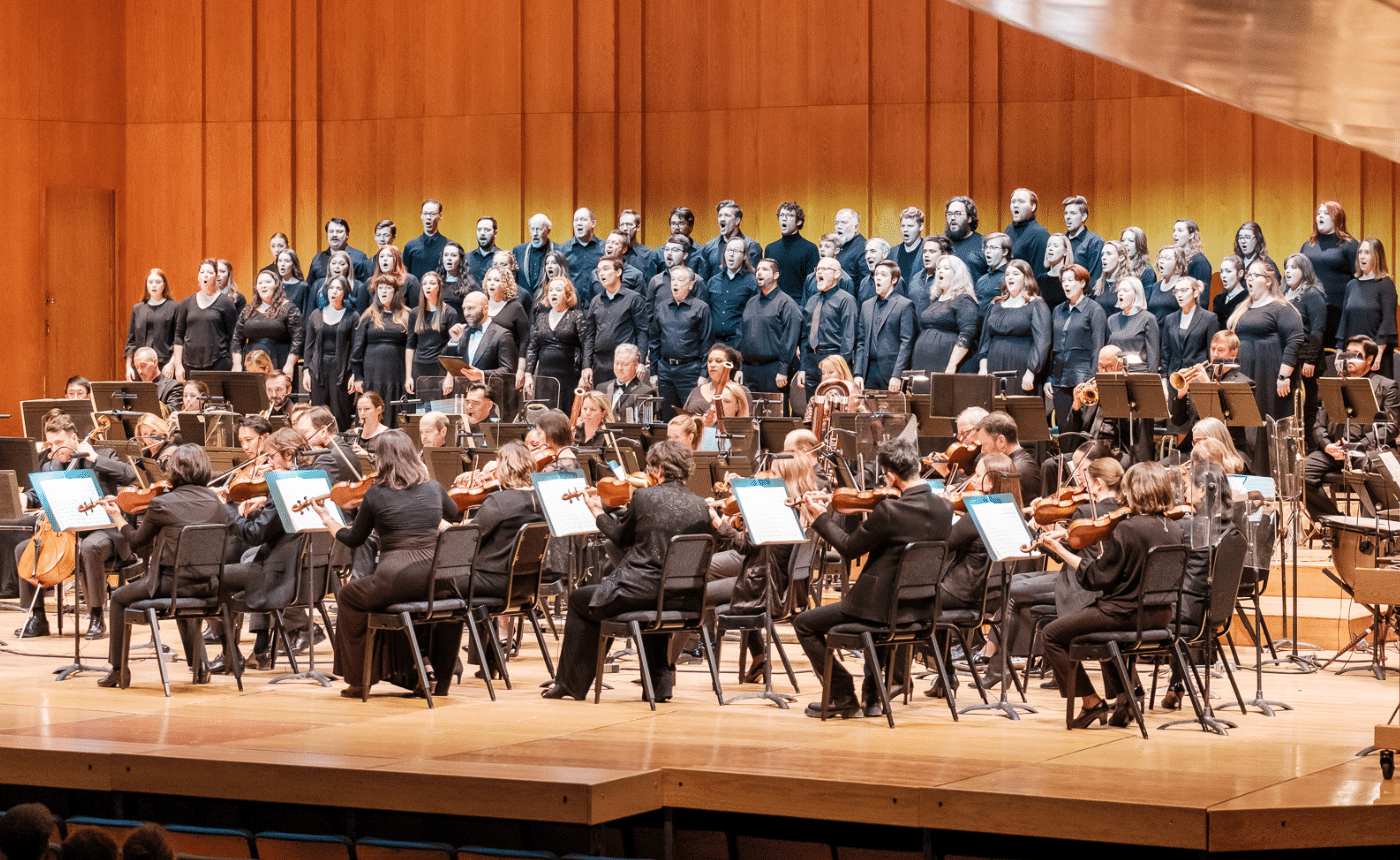Tchaikovsky – Romeo and Juliet Fantasy Overture
Instrumentation: piccolo, 2 flutes, 2 oboes, English horn, 2 clarinets, 2 bassoons, 4 horns, 2 trumpets, 2 trombones, tuba, timpani, cymbals, bass drum, harp, strings.
Duration: 19 minutes.
THE COMPOSER – PIOTR ILYICH TCHAIKOVSKY (1840-1893) – Tchaikovsky spent his first Moscow years in pursuit of a more stable and serious professional standing. Teaching duties at the conservatory certainly helped and his membership in Nicholai Rubenstein’s “Artistic Circle” provided excellent opportunities to interact with the Russian literary and theatre elite. Though not entirely unsuccessful as a composer, Tchaikovsky was locked in the struggle that all young artists must endure – the shift from juvenilia to full maturity.
THE MUSIC – Mily Balakirev was a well-established founding father of Russian Nationalism in the late 1860s when he recognized a potential new protégé in the young Tchaikovsky. Balakirev’s influence had begun to diminish over the previous years but his helpful and discerning eye was just the sort of validation Tchaikovsky needed at the time. When Balakirev proposed a musical fantasy setting of Shakespeare’s tragic Romeo and Juliet in 1869, Tchaikovsky (a tortured soul even then) took to the agonizing subject matter in earnest. The dramatic events of Romeo and Juliet the play have elicited several legendary musical responses over time. Berlioz, Prokofiev and even Leonard Bernstein crafted masterful scores that perfectly captured the broad-stroke emotional content of Shakespeare’s words and Tchaikovsky’s “fantasy overture,” though more brief in scope, is their equal (if not superior) in every regard. This was the first great thunderbolt to issue from Tchaikovsky’s pen and the best early realization of his incredible potential. The boiled down story of the overture careens between the tension of the clashing Montague and Capulet houses and the heartbreaking beauty of the protagonists’ love. The sum of the parts is pure magic. Tchaikovsky revised the score twice over the next decade, once in 1870 at the suggestion of Balakirev and again in 1880. Thought the original version is a masterpiece in its own right, it was the final revision that the composer himself blessed as definitive.
THE WORLD – Russian chemist Dmitri Mendeleev became the first to publish a periodic table of elements in 1869. 1869 also saw the beginning of the Red River Rebellion in Canada, the inauguration of the Suez Canal and the publication of War and Peace.
THE CONNECTION – Tchaikovsky’s Romeo and Juliet has been programmed three times since 1990 on the Utah Symphony Masterworks Series, most recently in 2004 with Keith Lockhart.











